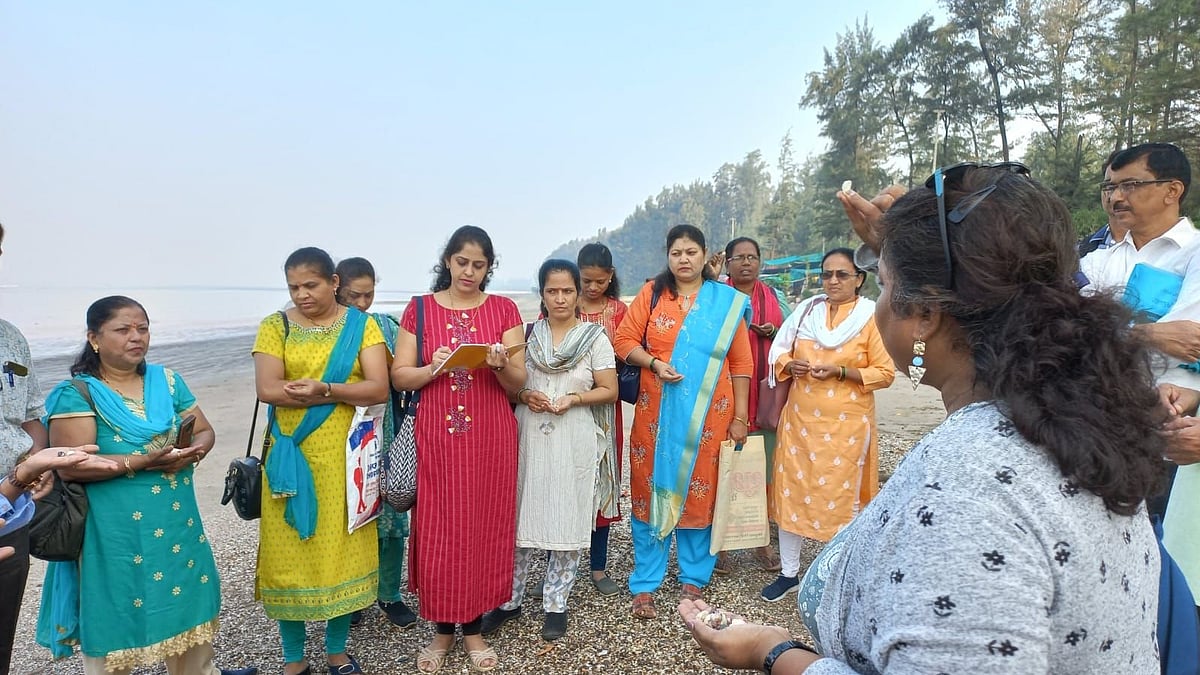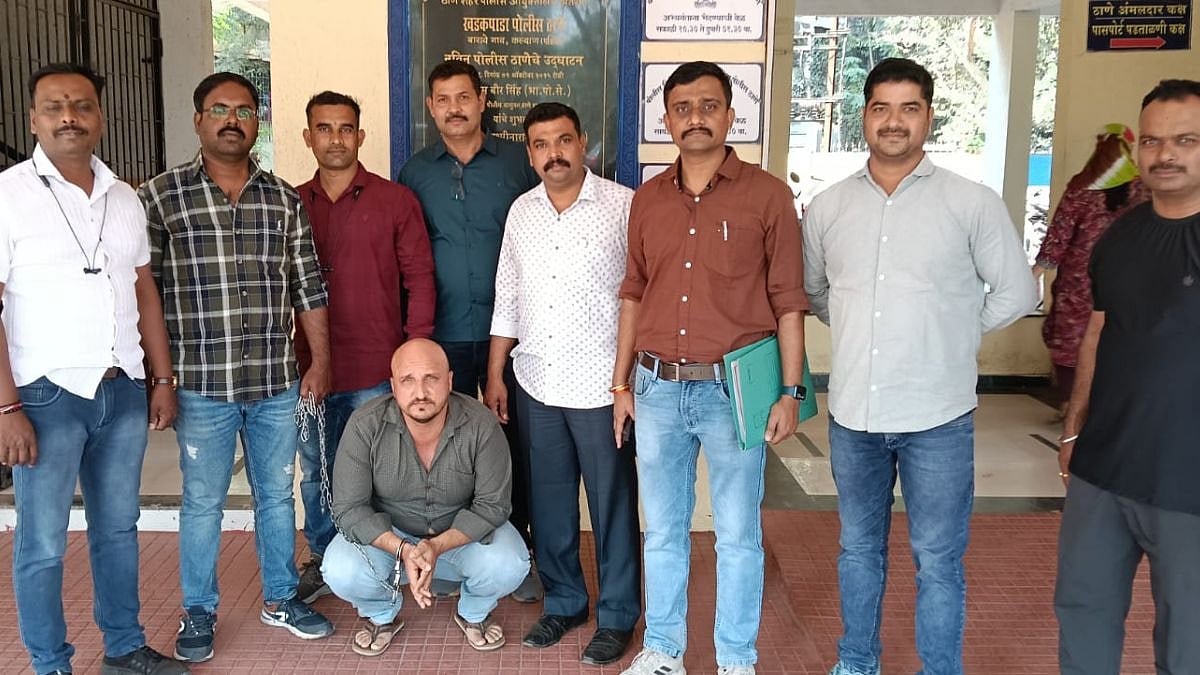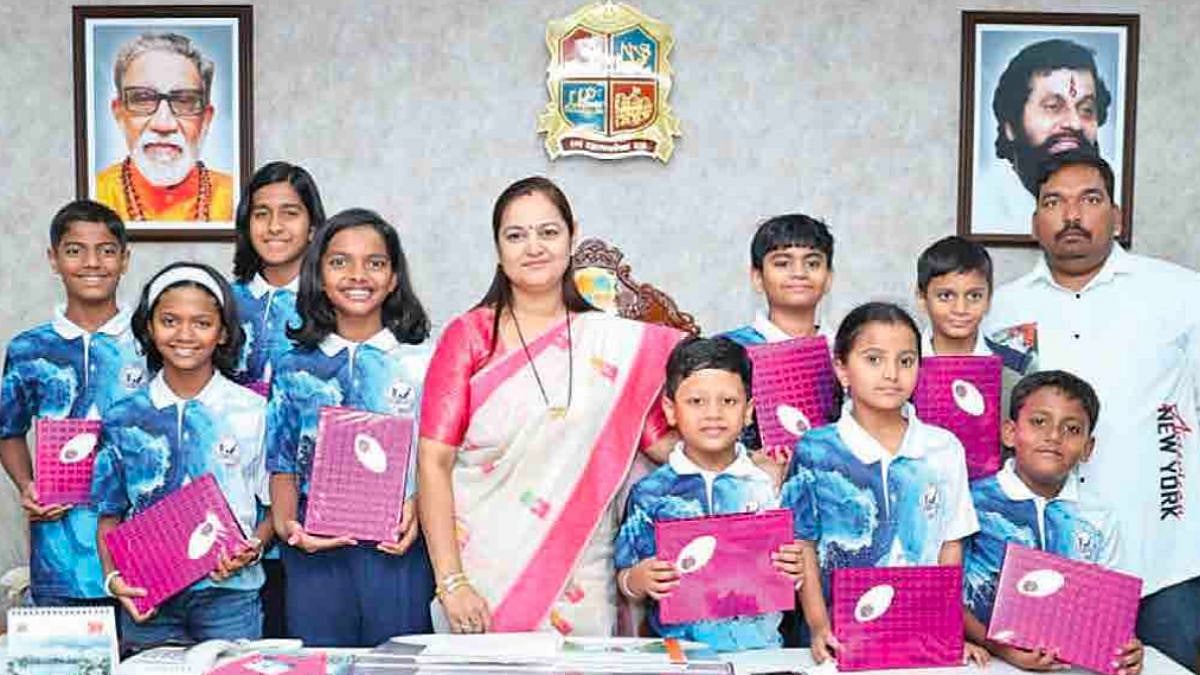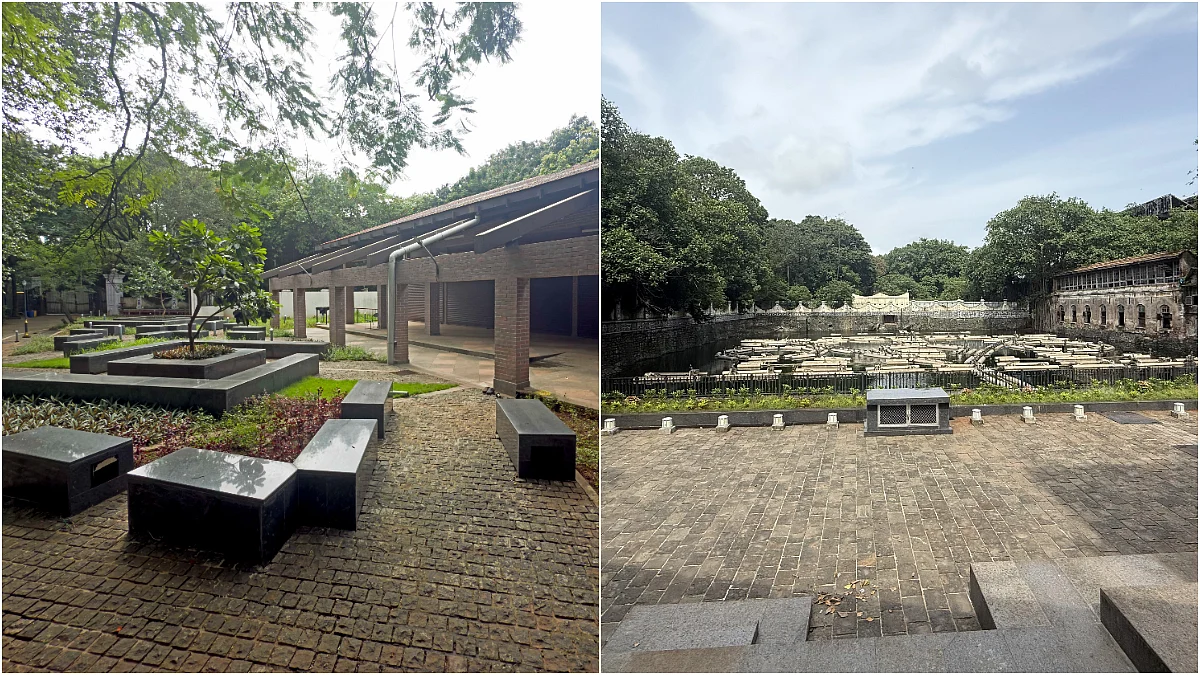Dr. V Shubhalaxmi, an environmentalist, entomologist (insect scientist), and educationist put her 30 years of experience in writing a book calledThe World is my Canvas for the students of classes VII, VIII and IX. Also known as the first Indian Moth lady, Dr Shubhalaxmi says children nowadays suffer from nature deficiency syndrome as they spend most of their time either on mobile phones or visiting malls. She feels it is necessary for children to spend time outdoors and explore nature.
Children's disinterest in environmental studies is due to lack of importance in their curriculum. Nor is it looked at as a career option.
The Rotary Club of Bombay, the brainchild behind the book, chose Dr. Shubhalaxmi and her colleague Priti Choghale to frame it. A pilot project to prescribe the book in the National Council of Educational Research and Training (NCERT) curriculum in Maharashtra is underway.Dr. Shubhalaxmi talks to FPJ about the book.
Q. Tell me something about the book.
A - The World is my Canvas is a unique book which encourages students to explore nature. The content focuses on bio-diversity which connects students with nature with small activities like visiting a beach, a garden, or a forest.
Q.Why is it important for students to study environmental issues?
A – The 17 sustainable goals framed by the United Nations are based on the environment. For example, health issues are connected with the environment or livelihood or business is also connected with the environment. Environmental study needs to be a part of our value system. The next generation needs to be taught to respect and protect nature’s flora and fauna.
Q. How will this book benefit their curriculum?
A- We studied the state board and NCERT books before framing the new book. Keeping the curriculum intact, the 50 percent addition in the book includes the latest development on each topic. There is no connection between what is being taught in Class I and Class VII or IX. Our book in three levels explains basic in the first level, is moderate in level two, and level three has advanced syllabus on the same subject.
Q. What is new in the book?
Each chapter has a project work which requires working with data, research, and visiting places. We have ensured that every chapter has a project which can be done by visiting a nearby beach, garden, or sanctuary to collect data. Students have to identify the problem and suggest solutions. They have to fill in the data sheet provided.
Q. Where will the book be used?
A: We conducted a three-day teachers’ training in Palghar. It was an eye-opening session for teachers who participated from Mumbai, Thane, and Palghar. They thought it would be a Save Environment kind of lecture. But we took them for a beach walk in Palghar and showed them the house of crabs, different shells, and seashore features. They were thrilled to learn something new, though they have been visiting the beaches for years. The purpose is to create awareness among teachers, students and common people. Students need to visit such places, change their attitude and convert it into action. My job was not limited to writing the book. It included introducing it to teachers, teaching the methodology to use them, and making it easy to understand the book.
6. Has the education department adopted the book?
The Rotary club has ensured that it be taken up by NCERT initially in Maharashtra, but the main aim is to go pan India with this book. As of now, this book is free for distribution. A pilot project is also underway in Palghar and based on it, NCERT will take a decision to adopt it.
7. How does this book guide students to decide their careers in environmental studies?
In the advanced book for Class IX , there is a chapter Green Career that discusses different career options and talks about scientists who are still working.
8. What is your message for parents?
Parents need to expose their children to nature to explore its beauty. It cannot be done at home or in a mall. Young parents are participating in a subject-like environment. Last Child in the Woods, a book by Richard Louv talks about today’s children suffering from nature deficiency syndrome. Parents take their children to nature-like gardens, beach forests, or a forest and let them explore whatever they see.







